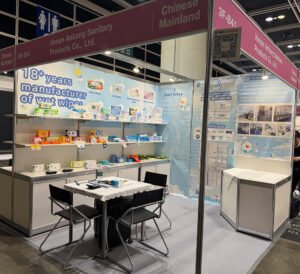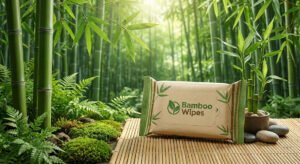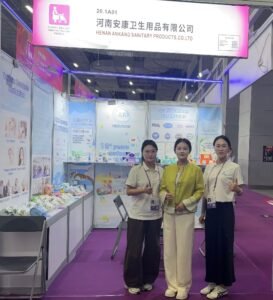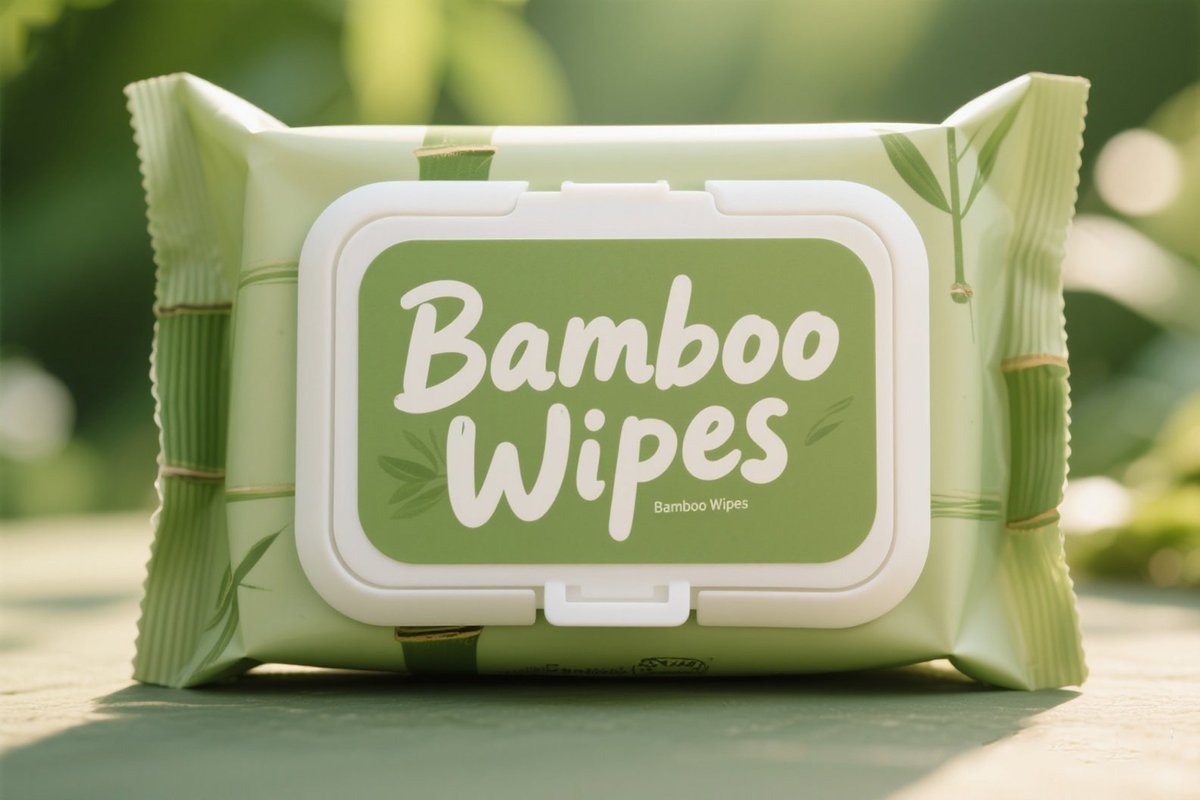The journey of parenthood is a whirlwind, isn’t it? From the moment you hold that tiny hand, a whole new world of questions opens up. You scrutinize every product, every ingredient, every decision, all with the singular goal of ensuring your little one’s well-being. And rightly so! In this constant quest for the best, one seemingly simple item often sparks a surprising amount of debate and even, dare I say, a touch of panic: baby wipes. For decades, parents have reached for traditional wipes without much thought. But now, a new contender has emerged, stirring both excitement and a healthy dose of skepticism: bamboo baby wipes. As a manufacturer deeply committed to infant care and innovation, we’re here to address the burning question on many parents’ minds: “Are bamboo baby wipes safe?”
Let’s cut through the confusion right away. The short answer, unequivocally, is yes. However, like any product designed for delicate infant skin, the devil is in the details, and not all bamboo wipes are created equal. As a manufacturer, our responsibility extends beyond just producing wipes; it’s about providing peace of mind. We understand the sudden surge of concern you might feel when a new product enters the market, especially when it touches something as precious as your baby’s skin. Rest assured, the shift towards bamboo is not merely a passing trend; it’s a carefully considered evolution in infant care, driven by a deeper understanding of both skin sensitivity and environmental responsibility.
Think for a moment about the traditional baby wipe. While generally safe, many are made from synthetic materials like polyester or polypropylene. While these materials are effective at cleaning, they lack the natural breathability and inherent softness of plant-based fibers. More importantly, their manufacturing process often involves chemicals that, while within safety limits, can be a cause for concern for parents seeking the purest options. This isn’t to say traditional wipes are inherently bad, but rather to highlight the impetus behind the development of alternatives. The industry, much like parenting itself, is constantly striving for improvement.
So, what makes bamboo such a compelling choice for baby wipes? The answer lies in its remarkable natural properties. Bamboo fibers are incredibly soft, naturally hypoallergenic, and surprisingly strong. Imagine a material that feels like silk against your baby’s skin but can also handle the messiest of diaper changes with ease. This combination of gentleness and efficacy is precisely what makes bamboo so appealing. Furthermore, bamboo is a highly sustainable resource. It grows rapidly, requires minimal water, and doesn’t need pesticides or fertilizers1 to thrive. This inherent eco-friendliness isn’t just a bonus; it’s a fundamental part of the appeal for many modern parents who are increasingly conscious of their environmental footprint. We, as manufacturers, recognize this growing demand for products that align with both health and planetary well-being.

Now, let’s delve deeper into the aspects that truly define the safety of bamboo baby wipes, particularly from a manufacturing perspective. When we formulate a bamboo wipe, our primary focus is on two critical elements: the raw material itself and the accompanying liquid solution. The bamboo fibers we use are carefully selected and processed to ensure they are free from harsh chemicals, bleaches, or dyes. This initial purity is paramount. We understand that even the slightest trace of an irritant can trigger discomfort for a baby with sensitive skin. Have you ever experienced a sudden, unexpected rash? That’s the feeling we strive to prevent in infants, whose skin is far more delicate and permeable than an adult’s.
Beyond the fiber, the liquid solution within the wipe is equally, if not more, crucial. This is where a manufacturer’s commitment to safety truly shines. Our bamboo baby wipes are formulated with a minimalist approach, prioritizing natural, gentle ingredients. This often means purified water, aloe vera, chamomile extract, and very mild, plant-derived cleansers. What you won’t find in our high-quality bamboo wipes are ingredients like alcohol, parabens, phthalates, chlorine, or harsh fragrances. Why? Because these are the common culprits behind skin irritation, dryness, and allergic reactions in infants. We conduct extensive testing, including dermatological and pediatric assessments, to ensure our formulations are as gentle as a mother’s touch. It’s a rigorous process, but one we believe is essential for earning your trust.
Consider the common challenges parents face: diaper rash, eczema, and general skin sensitivity. Many traditional wipes, due to their chemical composition or synthetic fibers, can exacerbate these conditions. Bamboo wipes, by their very nature, offer a kinder alternative. The natural breathability of the fibers helps prevent moisture buildup, a primary cause of diaper rash. The absence of irritating chemicals reduces the likelihood of allergic reactions and provides a soothing experience for already irritated skin. It’s not just about cleaning; it’s about comforting. As a manufacturer, our aim is to not just meet, but to exceed, the expectations of parents who are looking for truly nurturing products for their little ones.
Furthermore, the biodegradability of bamboo wipes is an often-overlooked safety aspect. While not directly related to skin safety, it speaks to the overall environmental impact of a product. Traditional wipes, often made from plastic, can take hundreds of years to decompose, contributing to landfill waste and environmental pollution. Bamboo wipes, being plant-based, break down much faster, reducing their ecological footprint. This aligns with a holistic view of safety – safety for your baby and safety for the planet they will inherit. Isn’t it reassuring to know that your choice of baby wipe can contribute positively to both?
Of course, a manufacturer’s claim of safety is only as good as the evidence supporting it. That’s why transparency and rigorous testing are non-negotiable for us. We adhere to stringent quality control standards at every stage of production, from sourcing raw materials to final packaging. Our facilities are regularly audited, and our products undergo independent laboratory testing to verify their hypoallergenic properties, pH balance, and freedom from harmful substances. This unwavering commitment to quality assurance is what allows us to confidently state that our bamboo baby wipes are indeed safe for your precious little one.
You might be wondering, “But what about the ‘suddenness’ of switching to a new type of wipe?” It’s understandable to feel a little hesitant. We encourage parents to introduce any new product, including bamboo wipes, gradually. Perhaps try them for a few days to observe how your baby’s skin reacts. For the vast majority of infants, the transition will be smooth and beneficial. However, every baby is unique, and some may have extremely rare sensitivities. In such cases, consulting with a pediatrician is always the best course of action. Our goal is to empower you with information, not to dictate your choices.
In conclusion, from a wet wipes manufacturer’s perspective, bamboo baby wipes represent a significant leap forward in infant care. They offer a powerful combination of natural softness, hypoallergenic properties, chemical-free formulations, and impressive sustainability. When you choose a high-quality bamboo wipe from a reputable manufacturer, you are choosing a product that is meticulously crafted with your baby’s delicate skin and the health of our planet in mind. We pour our expertise, our research, and our passion into every single wipe, so you can clean your baby with confidence and peace of mind. The confusion surrounding new products is natural, but with bamboo wipes, the clarity of their benefits shines through.
FAQs
- Are all bamboo baby wipes truly chemical-free?
While many bamboo wipes aim to be chemical-free, it’s crucial to check the ingredient list. Reputable manufacturers will clearly state the absence of parabens, phthalates, chlorine, alcohol, and synthetic fragrances. Always look for certifications or claims like “hypoallergenic” or “pediatrician-tested” to ensure the highest standards.
2. How do bamboo wipes compare to water wipes in terms of safety?
Both bamboo wipes and water wipes are excellent choices for sensitive skin. Water wipes primarily contain 99% water and a touch of fruit extract, making them exceptionally gentle. Bamboo wipes offer similar gentleness but with the added benefits of bamboo fiber’s natural softness, strength, and sustainability. The best choice often comes down to personal preference and specific skin needs.
3. Can bamboo baby wipes cause allergic reactions?
While bamboo wipes are naturally hypoallergenic and designed to minimize allergic reactions, no product can guarantee zero reactions for every individual. Very rarely, an infant may have an unusual sensitivity to a natural ingredient like aloe vera or chamomile. If you notice any redness, rash, or irritation, discontinue use and consult your pediatrician.
4. Are bamboo baby wipes flushable?
Despite being biodegradable, most bamboo baby wipes are not designed to be flushed down toilets. While they break down faster than plastic wipes, they can still contribute to blockages in plumbing systems. Always dispose of them in a waste bin to prevent plumbing issues and protect municipal water systems.
5. How can I identify a high-quality, safe bamboo baby wipe from the perspective of a manufacturer?
Look for brands that prioritize transparency in their ingredient lists and manufacturing processes. High-quality wipes will often highlight features like “plant-based,” “fragrance-free,” “chlorine-free,” “pH-balanced,” and certifications from dermatological or pediatric organizations. Reputable manufacturers will also have positive customer reviews and clearly stated commitment to sustainability.





